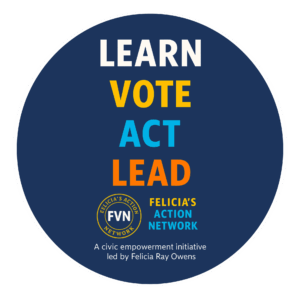
‘F1’ opens with $55 million, delivering Apple its biggest big-screen hit
June 29, 2025ENID RODRIGUEZ KNOWS WHAT A DIFFERENCE Medicaid can make, because it’s made a huge difference for her.
Rodriguez, 51, has been working for pretty much her entire life—first in organizations that provided support and therapy to at-risk children, more recently in a small electrical business she helps her husband run while she also takes care of her aging mother. She loved working with children and now is invested in the new enterprise. She even managed to get bachelor’s and master’s degrees (in human services) along the way.
But Rodriguez has never made enough money to pay health insurance premiums. That’s been a big problem because she’s had serious health conditions literally since birth, when she was born prematurely and developed an infection while spending two months in the NICU of a hospital in Puerto Rico.
Severe asthma. Chronic chest and gastric problems. Back pain from a hip injury a few years ago. She could count on a local free clinic to help manage symptoms, to provide preventive care and, frequently, to provide much-appreciated hugs. But Rodriguez also needed specialty care the clinic couldn’t provide. And when an apparent heart attack brought her to the emergency room a few years ago, she ended up with a $20,000 bill she had no way to pay.
All of that changed in late 2023, when North Carolina officially opened its Medicaid program to anybody with incomes below or just above the poverty line—in other words, to people like Rodriguez who were too poor to get insurance on their own but did not qualify for the older, narrower standards North Carolina had for its Medicaid program.
Since then Rodriguez has been able to see those specialists—including one who figured out her chest pains were an upper GI condition, not a heart issue. She’s also getting physical therapy for her old injury, and is on weight-loss medication that doctors think will help with other conditions.
“Medicaid has literally been a lifesaver,” she told me this week, when we met at the Community Care Clinic of Rowan County, where she used to get care. But there was a tinge of anxiety in her voice, because, she said, she is worried the cuts in Republicans’ One Big Beautiful Bill will leave her without coverage.

“I wouldn’t be able to see the cardiologist who makes sure my heart is okay, the gastroenterologist who’s treating my gastrointestinal problems, the weight-loss specialist,” Rodriguez said.
Medicaid isn’t perfect, she said, and she doesn’t expect government programs to provide everything she and her husband need. But, she said, “we shouldn’t have to work fifty-, sixty-hour weeks to pay our bills, and still struggle to take care of ourselves when it comes to our medical expenses.”
But worry she must. Medicaid coverage for millions of Americans like Rodriguez is in jeopardy. In fact, it could be doomed in a matter of days.
THE LEGISLATION THAT DONALD TRUMP is pushing and Republicans are trying to pass by July 4 seeks to cut Medicaid by nearly a trillion dollars over the next ten years, through a variety of changes that could include everything from so-called “work requirements” to complex changes in financing that could directly or indirectly lower the federal government’s contribution to the program.
“Could” is a key word there, because the emerging bill that leaders in the Senate hope to approve by Monday is different from the bill House Republicans approved last month. And some House members are already saying they can’t vote for it.
But Republicans have made threats to tank big bills before, before ultimately falling in line. And there’s a good reason to think they will do so again: Downsizing Medicaid is a longtime goal of many conservatives, who believe society is better off with less government and less government spending. Plus, the bill with the Medicaid cuts also has lots of tax cuts, which pretty much the entire party is desperate to pass.
The public doesn’t seem too enthusiastic about that prospect, based on polls showing Americans already have strong, negative views of the bill, and that they don’t want anybody touching Medicaid. That undoubtedly explains why Trump and his allies keep insisting that they are “strengthening” the program, and downplaying or denying that the cuts would cause harm.
Those claims don’t hold up when the Congressional Budget Office is projecting that nearly 12 million people would end up uninsured if something like the Senate bill becomes law—and when a slew of new academic studies, like so many earlier ones, suggest that people losing Medicaid are more likely to miss out on medical care, get sick, and in the worst cases die prematurely.
Republicans say the experts making these predictions can’t be trusted. But you don’t need to put stock in academic-style research to grasp what Medicaid has meant to individuals and their communities in recent years—and what its absence could do to those individuals and communities now.
All you need to do is talk with people who know firsthand. And there may be no better place to find them than North Carolina.
NORTH CAROLINA WAS ONE OF THOSE Republican-led states that at first refused to participate in Obamacare’s “Medicaid expansion,” which makes federal funding available to states that widen their Medicaid programs to include many more people living near the poverty line. But advocates in North Carolina kept organizing and lobbying on behalf of expansion, and when popular Democratic governor Roy Cooper came into office in 2017 he made expansion a top priority. Small business owners and hospital leaders eventually became outspoken backers of expansion, helping to persuade key state Republicans to embrace the cause.
In the spring of 2023, the Republican-led legislature passed a bipartisan expansion bill and Cooper signed it. The new program launched on December 1 of that year, with about 300,000 people automatically enrolled. Since then, it has swelled to cover more than 600,000.
But those numbers alone don’t capture the full impact. Expansion has meant new money for providers who serve low-income populations, because now more of their patients can pay their bills.
That’s been especially important for organizations like Blue Ridge Health, a network of clinics in North Carolina’s westernmost counties where the percentage of uninsured patients declined almost overnight from about half to about a third, according to Richard Hudspeth, the system’s director.
Because that shift has increased revenue, Blue Ridge can now offer services like pediatric dentistry and behavioral health that had been practically unavailable in these rural communities before. It has also expanded its overall capacity—which, Hudspeth told me, made a big difference when Hurricane Helene swept through the region last fall.
“There was so much debris, and all these respiratory infections,” said Hudspeth, who is also a family physician and still sees patients. “Having that capacity let people get their lives together quicker, and get back to work too.”
Christopher Vann told me about a similar transformation at CommWell Health, a clinic network on the eastern side of North Carolina where he is vice president of development. Before expansion, about one in ten patients seen by CommWell was on Medicaid; since expansion, it has been about one in four.
The new money, Vann said, has allowed CommWell to focus on reaching patients who were far from clinics, through a combination of transportation and mobile clinics. CommWell has also invested in pediatric services they offer directly to children through the schools.
The communities CommWell serves still have all kinds of unmet needs, Vann said, but expansion “is allowing us to chip away at that mountain.”
At the Rowan clinic, executive director Krista Woolly told me she knows of many patients like Rodriguez, who were finally able to get specialty care once they got onto Medicaid.
Amy Wilson, the Rowan clinic’s medical director, told me “I work really hard to take care of people, but there’s only so much I can do. I can’t take out your gall bladder, I can’t give you chemotherapy, I can’t replace your hip. There are all kinds of things I can’t do post-stroke, or give you physical therapy three times a week.”
“This patient population, they just got access” to those sorts of procedures thanks to Medicaid expansion, Wilson added. But the One Big Beautiful Bill could undo much of that progress. “Are they going to have that all ripped out from them again? They’ve stabilized, evened out, and we’re just going to start all over again?”
SUPPORTERS OF THE GOP BILL frequently claim they are protecting Medicaid, not cutting it. Trump himself has repeated these false claims. On Thursday, for example, he said that under the bill “Medicaid is left alone, it’s left the same.” On Friday, he said that Democratic policies would destroy Medicaid but the Republican bill would make it “better,” or even “perfect.”
It’s about as blatant a lie as you’ll see in politics. And—again—nowhere is the deception more obvious than in North Carolina.
The most obvious reason is that the state law authorizing expansion—the one that passed with bipartisan support two years ago—includes a provision ending expansion if the federal government reduces its contribution to the program or requires substantial new spending by the state. Several features of the GOP bill could trigger that provision, according to an analysis conducted by state officials and reported by North Carolina Health News.
The language of the North Carolina law is sufficiently ambiguous that it’s hard to be sure how this would all play out. The courts could end up deciding that changes in the GOP bill wouldn’t trigger cancellation, or the state legislature could act to amend the law so that expansion could keep going.
But even if the GOP legislation doesn’t force a full rollback of Medicaid expansion in North Carolina, the cuts under discussion could mean hundreds of thousands of North Carolinians will lose coverage—and, in most cases, become uninsured.
The primary reason would be those work requirements, which supporters of the GOP legislation say will make sure able-bodied people don’t take advantage of the system.
The work requirements are one of the few parts of the Republican bill that draw support from a majority of Americans—and even many of the people who work with low-income populations. But those on the front lines say the documentation requirements can be difficult on low-income workers who might lack stable housing, or work in seasonal jobs, or have trouble navigating IT systems.
Front-line workers also wonder what work requirements would mean for the chronically understaffed agencies that handle eligibility paperwork now. The GOP bill would force them to do so more frequently—and to process all the information that goes with verifying employment status.
“In our county, our [local government services agency], people can’t keep up with what they’re doing now, and we’re going to ask them to do—instead of yearly checks—every six month checks,” Woolly said. “I think it’s just going to be a big cluster.”
And while the work requirements in the federal legislation exempt people with disabilities, the current text of the bill doesn’t define that category clearly. It’s quite possible that states, relying on to-be-issued federal guidance, would determine that only people who qualify for Social Security disability insurance qualify. That could leave out all the people who have real, disabling conditions that make work difficult but haven’t gotten on those federal insurance programs because the enrollment process is notoriously difficult.
“Disability is like a black hole,” Kate Daley, a health justice organizer with the advocacy group Down Home NC, told me. “There’s so many hurdles to jump through, and most people get denied for multiple years consecutively before they get approved. . . . If exemptions are going to apply for folks who have a disability determination, but it takes years to get a disability determination, what will that mean for all the folks who haven’t been approved yet?”
It’s a problem that researchers have highlighted repeatedly, and that Daley knows up close. She describes a friend of hers who suffered for years with multiple sclerosis that made it difficult to work but couldn’t obtain Medicaid under the old, stricter criteria because she hadn’t qualified for federal disability insurance.
She finally got coverage when North Carolina expanded Medicaid, Daley said, but not before developing more lesions. “Her MS is being managed now,” Daley said. “But before it was not managed, and that’s gonna likely have an impact on her life.”

WHEN YOU ZOOM IN, you’ll see countless other stories like those—stories of individuals and families likely to be harmed if North Carolina curtails its Medicaid expansion. And if you zoom back out, you can see how curtailing Medicaid expansion will harm health care providers. The decline in coverage would reduce the revenue flow into clinics and other safety-net providers, stalling and potentially starting to reverse the expansion of capacity and services that’s meant so much in the neediest part of the state.
Vann mentioned that CommWell recently opened a new, 12,000-square-foot facility offering medical, dental, and behavioral health services. “We may have to scale that back,” he told me. “I would hope that we wouldn’t have to close it, but there could be some really serious conversations about our ability to keep that facility going.”
That would be tough on the patients using those facilities, Vann said, but it would also have ripple effects throughout the community, since clinics like those at CommWell take some of the pressure off of emergency rooms and other providers—and because they employ workers, too.
The potential of Medicaid cuts to reverberate so broadly, especially in more rural areas, is one of the few issues that seem to be giving even some Republicans in Washington pause. Among those raising concerns—privately and publicly—has been Thom Tillis, the incumbent GOP senator from North Carolina who is up for re-election next year.
Tills on Saturday announced that he was voting no on the Senate bill, because of its effects on his state. But while Tillis and a handful of other Republican lawmakers have made a lot of noise about Medicaid cuts going too far, they’ve also signaled they’re willing to live with cuts nearly as big, still on the order of hundreds of billions of dollars.
That would have sweeping, harsh effects on North Carolina—on some of the state’s most vulnerable people, and on the institutions that care for them. But, of course, North Carolina is just one of fifty states in the country. This calamity could soon be felt, to varying degrees, on the other forty-nine, too.
Great Job Jonathan Cohn & the Team @ The Bulwark Source link for sharing this story.








